














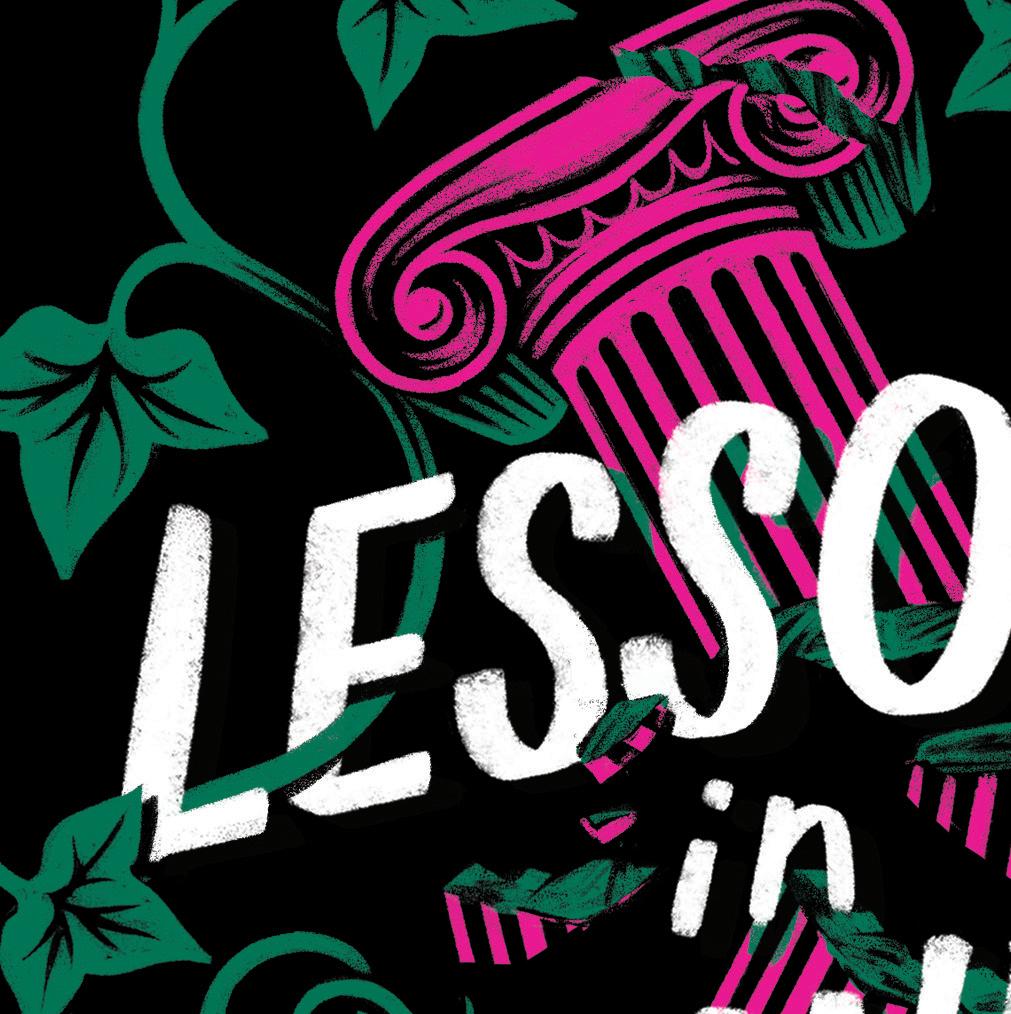
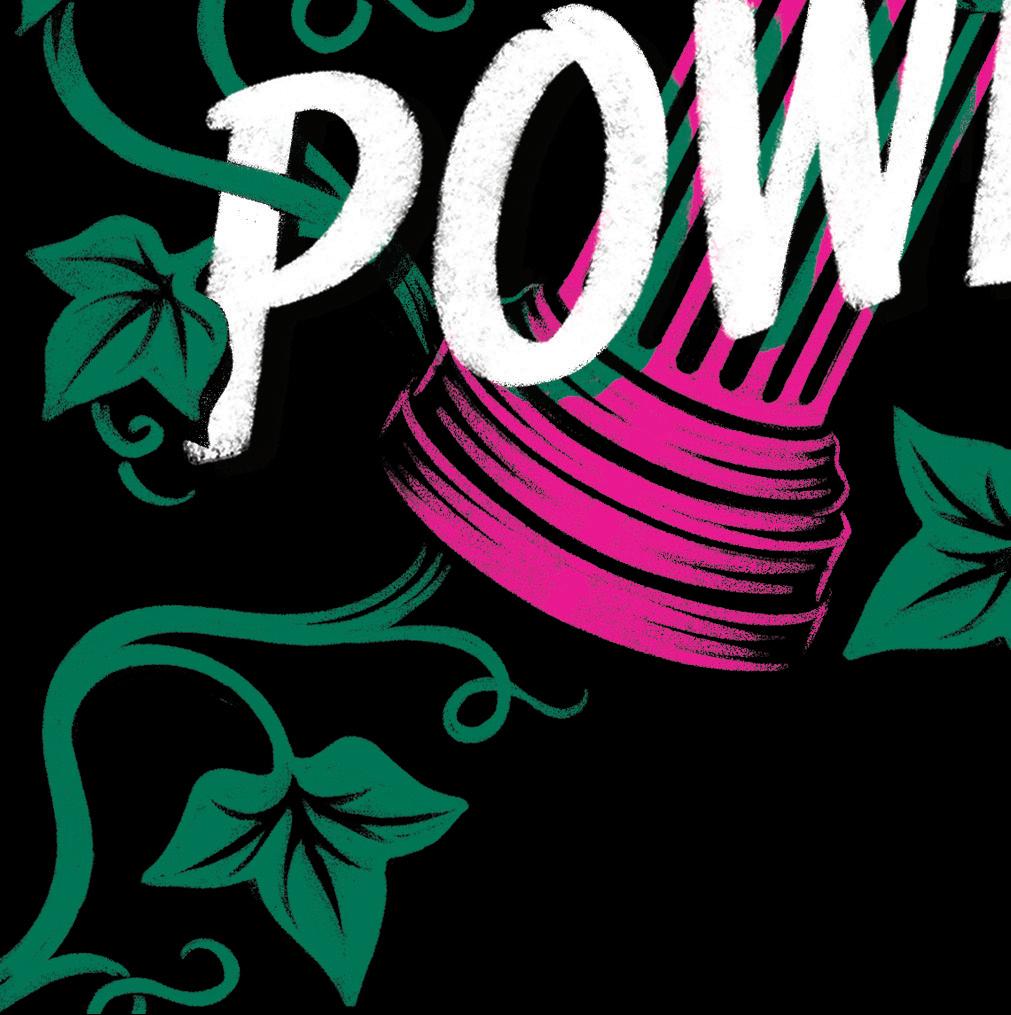
Knowledge is power, but secrets can ki . . .

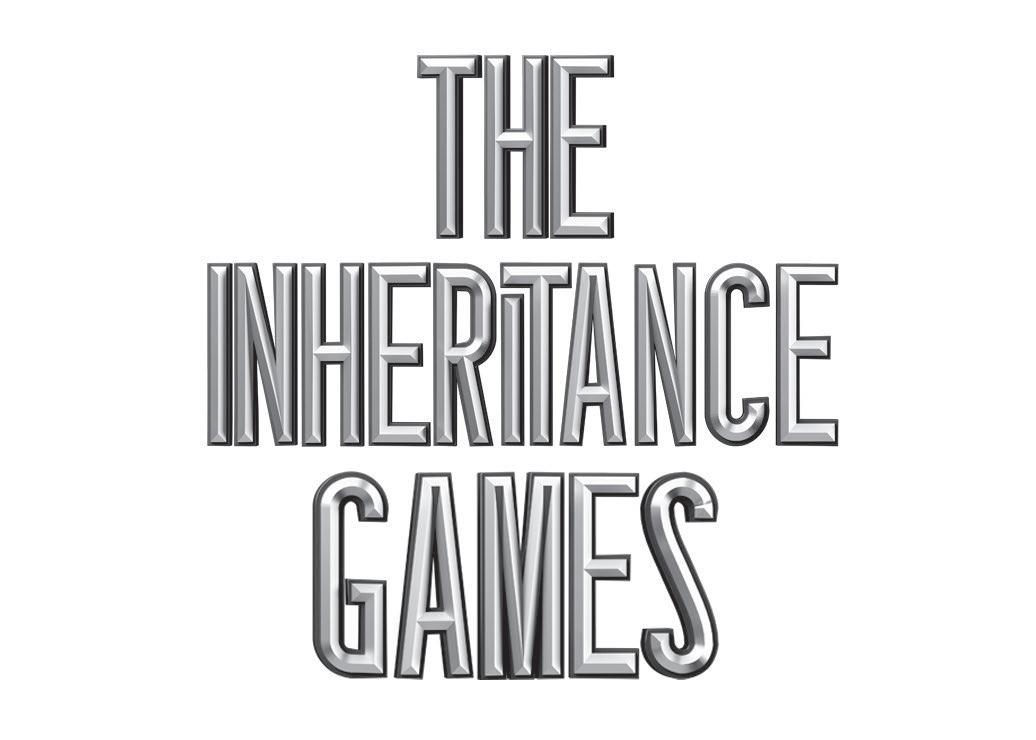
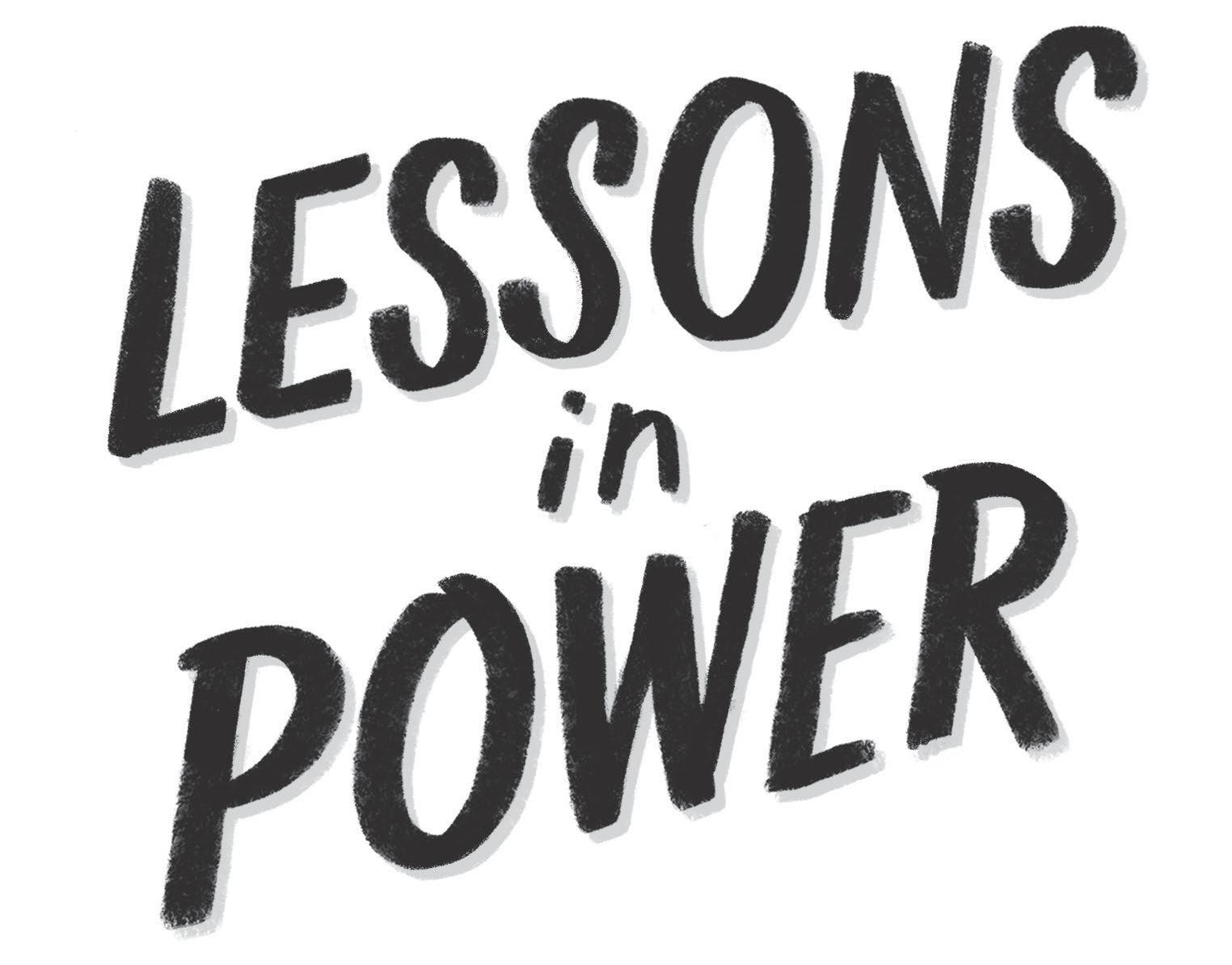
lso by J ennifer L ynn B arnes
The I nheritance Games Saga
The I nheritance Games
The Inheritance Games
The Hawthorne Legacy
The Final Gambit
The Brothers Hawthorne
T he G randest G ame
The Grandest Game
Glorious Rivals
Coming next: The Grandest Game 3
Games Untold
The Same Backward as Forward
The Debutantes
Little White Lies
Deadly Little Scandals
THE FIXER
The Ruling Class
Lessons in Power
THE SQUAD
Perfect Cover
Killer Spirit
The Lovely and the Lost
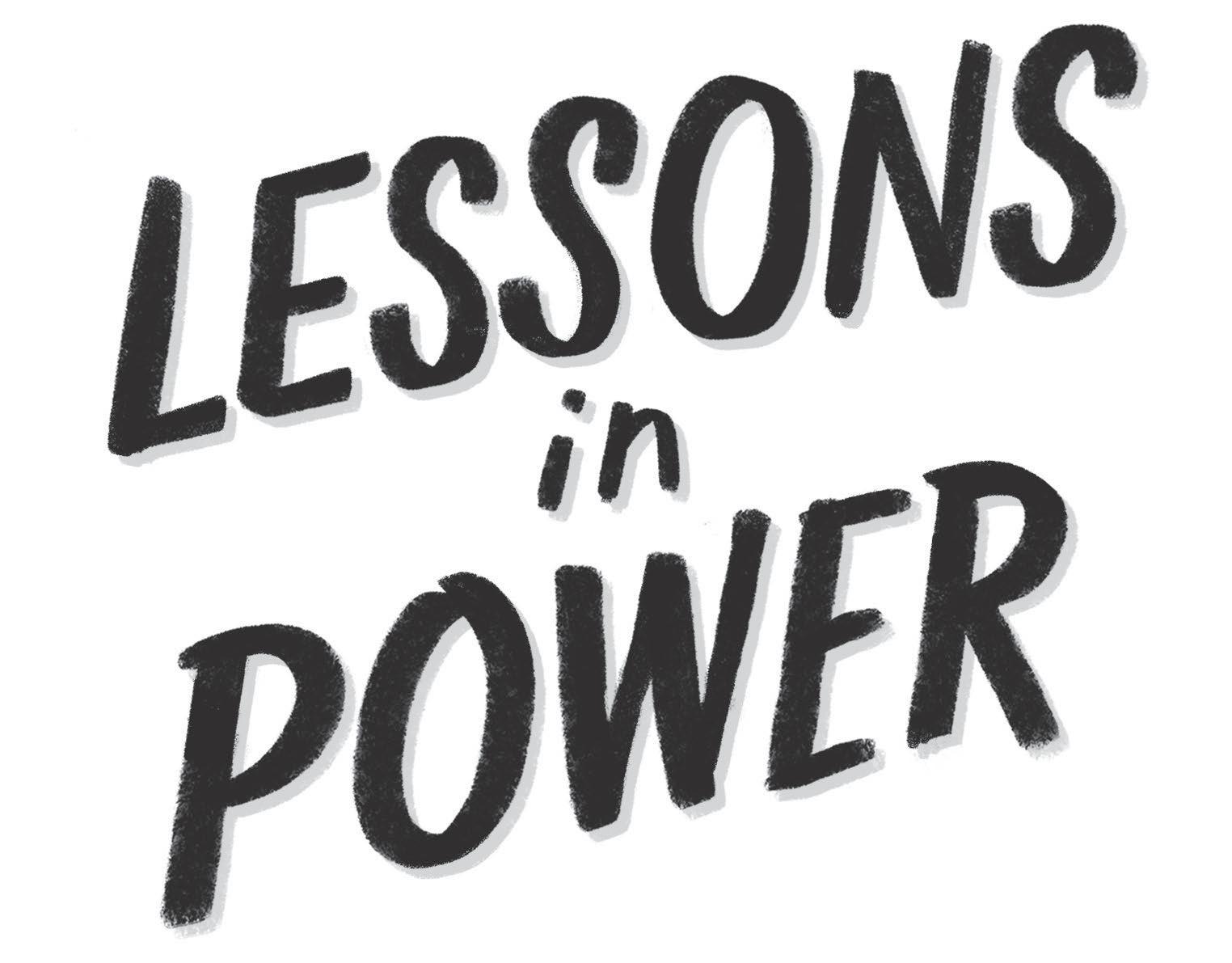
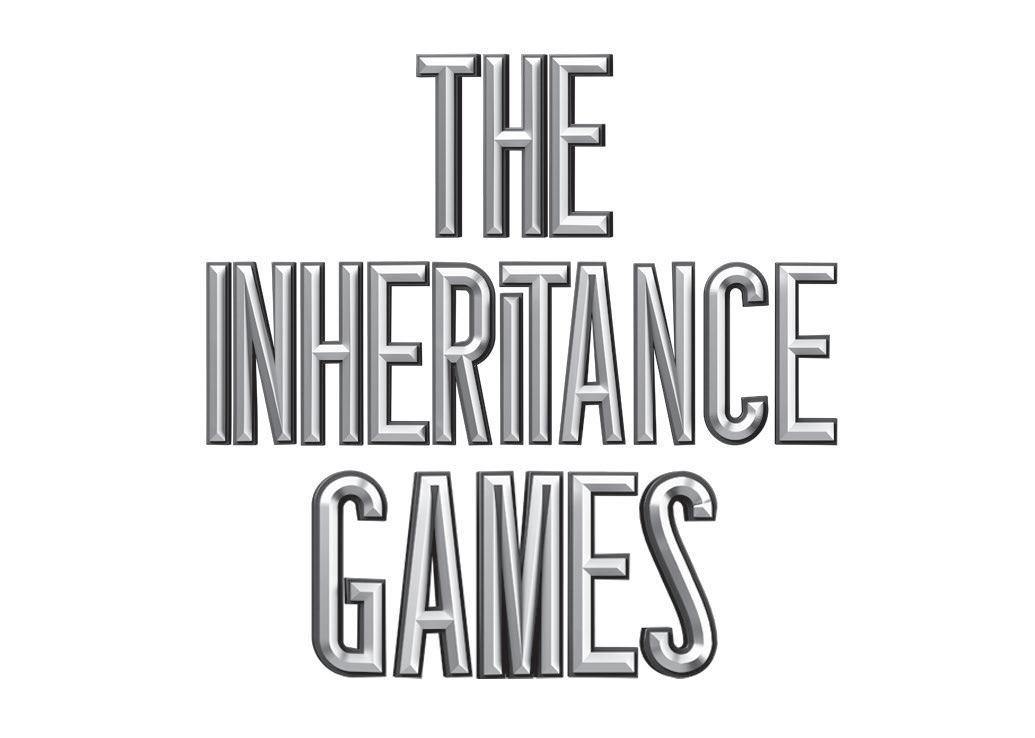


UK | USA | Canada | Ireland | Australia
India | New Zealand | South Africa
Penguin Books is part of the Penguin Random House group of companies whose addresses can be found at global.penguinrandomhouse.com.
www.penguin.co.uk www.puffin.co.uk www.ladybird.co.uk
First published in the USA as The Long Game by Bloomsbury Children’s Books 2016 Paperback edition first published in the USA by Bloomsbury Children’s Books 2017 This edition published in the USA by Bloomsbury YA and in Great Britain by Penguin Books 2025 001
Text copyright © Jennifer Lynn Barnes, 2016 Illustrations copyright © Jim Tierney, 2025
The moral right of the author and illustrator has been asserted
Penguin Random House values and supports copyright. Copyright fuels creativity, encourages diverse voices, promotes freedom of expression and supports a vibrant culture. Thank you for purchasing an authorized edition of this book and for respecting intellectual property laws by not reproducing, scanning or distributing any part of it by any means without permission. You are supporting authors and enabling Penguin Random House to continue to publish books for everyone. No part of this book may be used or reproduced in any manner for the purpose of training artificial intelligence technologies or systems. In accordance with Article 4(3) of the DSM Directive 2019/790, Penguin Random House expressly reserves this work from the text and data mining exception.
Printed and bound in Great Britain by Clays Ltd, Elcograf S.p.A.
The authorized representative in the EEA is Penguin Random House Ireland, Morrison Chambers, 32 Nassau Street, Dublin D02 YH 68
A CIP catalogue record for this book is available from the British Library
ISBN: 978–0–241–76312–4
All correspondence to: Penguin Books
Penguin Random House Children’s One Embassy Gardens, 8 Viaduct Gardens, London SW 11 7BW
Penguin Random Hous e is committed to a sustainable future for our business, our readers and our planet. is book is made from Forest Stewardship Council® certified paper.
“Tess, has anyone ever told you that you’re an absolute vision when you’re plotting something?” Asher Rhodes shot a lazy grin in my direction.
I ignored Asher and kept my gaze fixed on the street in front of the Roosevelt Hotel. A man named Charles Bancroft had a reservation at the Roosevelt’s five-star restaurant for lunch— pricey, considering Mr. Bancroft had recently convinced a judge that his child support and alimony payments should be kept to a minimum.
“Asking for a friend,” Asher clarified. Then he nudged his best friend. “Henry, my good man, tell Tess she’s pretty as a picture when she’s preparing to unleash her wrath on the delightfully unsuspecting father of one of our classmates.”
“Kendrick?” Henry Marquette said.
“Yes?” I replied without taking my eyes away from the street.
“You are utterly terrifying when you are plotting something.”
JENNIFER LYNN BARNES
A dark car pulled up to the curb. I smiled. “Thank you,” I told Henry. Then I turned to Asher. “Get Vivvie on the phone,” I instructed. “Tell her we’re a go.”
Vivvie and her aunt had lived at the Roosevelt Hotel for almost a month until they’d found a DC apartment. That was plenty of time for friendly-to-a-fault Vivvie Bharani to have endeared herself to the staff.
Convenient, that, I thought as I watched Charles Bancroft climb out of the backseat of his luxury sedan. Asher relayed my message to Vivvie, then put the phone on speaker.
“The eagle has landed,” Vivvie said from the other end. “The bird is in the bush.”
Few things in life gave Vivvie and Asher as much joy as talking in code. I didn’t bother translating. One of the bellhops wheeled a cart of luggage out in front of Bancroft’s car. Bancroft disappeared into the restaurant, but his driver wasn’t going anywhere.
That was my cue.
I took a step forward. Henry caught my elbow. “No bloodshed,” he said. “No blackmail. No obstruction of justice.”
“You drive a hard bargain,” I told him, stepping away from his grasp. “What are your thoughts on extortion?” Without waiting for an answer, I headed for Bancroft’s car.
Henry and Asher followed on my heels.
“The cat is dancing in the catnip,” Asher reported back to Vivvie. “Grumpy lion is grumpy.”
“Did you just refer to me as a grumpy lion?” Henry asked Asher.
“Absolutely not,” Asher promised. Then he took the phone off speaker and lowered his voice. “Suspicious lion is suspicious,” he stage-whispered to Vivvie.
With one last glance back at Henry and Asher, I approached Bancroft’s car and knocked on the window. The driver rolled it down.
“Can I help you?” he asked.
“I’m a friend of Jeremy’s,” I said. “I’d like to talk.”
Jeremy Bancroft was a senior at the Hardwicke School, due to graduate in the spring. Or at least he had been due to graduate from Hardwicke in the spring until his father stopped payment on his tuition. From what I’d gathered, Mr. Bancroft’s sole focus was making his ex-wife suffer for daring to divorce him, and he had no qualms whatsoever about using his own children to do it.
I had no qualms about lying in wait in the man’s car. An hour later, I was rewarded.
“I’m telling you right now,” Bancroft said, shifting his phone from one ear to the other as he situated himself in the backseat of the car, “they’ll be signed on with the firm by the end of business day tomorrow. Guaranteed.”
The car pulled away from the curb. I sat silently in the front passenger seat until we’d merged into traffic. Then I turned around.
“What the . . .” Bancroft hung up the phone and started barking out orders to his driver. “Mick, pull over.”
“Mick had to step out,” I told Jeremy’s father. “Right about now, he’s probably wondering where you and your car are.”
In reality, Bancroft’s driver had agreed to take a very conveniently timed bathroom break. He was, as it turned out, fonder of his boss’s son than of his boss.
“I don’t know who you are,” Bancroft gritted out, “or what you want—”
“I’d like for you to stop using your children as pawns in whatever sick game you have going on with your ex-wife,” I said. “But I’ll settle for a rather large transfer of funds.”
Bancroft stared at me in disbelief. “Who put you up to this?”
“A better question might be what I’m going to do if you don’t transfer those funds.”
“Do?” Bancroft sputtered. “You can’t do anything. You’re a kid.”
“I’m Tess Kendrick,” I said. “Keyes.” The second last name was an afterthought. The combination of the two had the man in the backseat paling. “I go to Hardwicke with your son. Jeremy seems fairly convinced that you’re hiding money in an offshore account to keep your child support payments to a minimum.”
Bancroft showed not even a trace of emotion at the mention of his son. “Prove it,” he spat out.
“I don’t have to.” I took my time explaining those words. “Either you have been hiding assets,” I said, “which makes you a felon, or you’re actually as broke as you claim to be, which makes you the very last person in the world whom anyone in DC should trust to invest their money.” I paused. “I wonder how long it would take for news of your financial difficulties to spread.”
Bancroft snorted, but his eyes gave him away. He was looking nervous. Good. “You think my ex-wife wants DC society to realize how broke she is?” the man countered. “If she was going to go public with this, she would have already.”
True.
“I’m not your ex-wife.” I picked up my phone and brought up the contact information for the Washington Post. “And as it turns out, I don’t have a vested interest in whether people think she’s broke or not.” I turned the phone toward Bancroft just long
enough for him to see who I was calling, then hit the call button, setting the phone to speaker.
It rang once.
Twice.
“Stop,” Bancroft said.
I hit the button to end the call just as someone picked up. I held out the paperwork Henry had asked his family attorney to draw up. “In an ideal world,” I said, “you’d amend the divorce settlement you made with your ex-wife.”
A muscle in Bancroft’s jaw ticked. He’d take his chances weathering damaging rumors before he’d give his ex anything she wanted.
“However,” I continued, “I thought you might prefer making an anonymous donation to your children’s school.”
I held out the papers again. Bancroft took them. Reading them, he frowned. “A scholarship fund?”
“Donors can put whatever stipulations they would like on a donation. Your stipulations are very specific.”
Jeremy and his little sister would be the recipients of scholarships that would pay their Hardwicke tuition through graduation.
“I only have two children.” Bancroft looked up from the pages and glowered at me. “Why am I funding three scholarships?”
I offered him a tight-lipped smile. “Price of doing business.”
A vein in Bancroft’s forehead throbbed. “And if I tear up these papers, call the police, and have you arrested for stealing my car?”
I shrugged. “Technically,” I said, “I didn’t steal your car.”
The car slowed to a stop at the curb of the Roosevelt, having circled the block. In the driver’s seat, Henry turned around. “Technically,” he said, “I did.”
“Henry Marquette,” I clarified for the man in the backseat. “His mother is Pamela Abellard.” My smile took on a cateating-canary glint. “Correct me if I’m wrong, but aren’t the Abellards your firm’s biggest client?”
Bancroft’s grip tightened over his phone, his knuckles turning white.
“We both know you’re not making that call,” I said. I nodded toward the paperwork in his hands.
The man’s eyes went back to Henry’s.
“Normally,” Henry told him conversationally, “when someone asks me to commit grand theft auto, my answer is a firm no. But I have a sister.” Henry’s expression was perfectly polite, but his mintgreen eyes flashed, striking against his dark brown skin. “My little sister,” Henry continued, “is your daughter’s age. Nine years old.”
Bancroft signed the papers. He made a call and authorized the transfer of funds.
As I exited the car, I glanced over at Henry. “Should I call Asher and tell him we won’t be needing that getaway distraction?”
Before Henry could reply, pop music reverberated off the building. Asher jogged into the middle of a large crowd and struck a dramatic pose.
“You say ‘distraction,’” Henry deadpanned, “Asher hears ‘flash mob.’”
Five seconds later, Vivvie danced wildly past and gave me a questioning look. I nodded.
“The possum has fallen on the nun!” Vivvie called to Asher.
Asher didn’t miss a beat of choreography. He shimmied and punched a fist into the air. “Long live the possum!”
I had exactly three hours to recover from my confrontation with Jeremy Bancroft’s father before I found myself facing off against a very different opponent.
“What do you know about the War of the Roses?” My paternal grandfather closed his fingers around a black knight and then used it to remove my rook from the chessboard.
No mercy. No hesitation.
“Wars of the Roses,” I said, countering his move. “Plural.”
The edges of the old man’s lips quirked upward. He inclined his head slightly—both an acknowledgment of my point and a command to continue.
“Bunch of guys in the fifteenth century fighting for the throne of England.”
I kept my summary short and to the point. As in chess, every move in a conversation with William Keyes came with consequences, either immediate or down the line. He was grooming me as his heir, attempting to mold me in his own image. If I gave
JENNIFER LYNN BARNES
an inch, he’d take a mile, and I had no desire to be either molded or groomed.
Especially by a man who may or may not have conspired to assassinate the chief justice of the United States Supreme Court.
“The Wars of the Roses were a series of lethal confrontations and political maneuverings between the house of Lancaster and the house of York,” Keyes corrected, sliding his bishop across the board as he lectured. “Political unrest tends to be unkind to weak and strategically impotent kings.”
His gaze settled on the chessboard—on my king—but I knew he was thinking about another ruler and another throne.
Weekly Sunday night dinners at the Keyes mansion had cemented my understanding of my paternal grandfather as a man with many allies and many enemies. More often than not, he considered President Nolan the latter. Every bump in the road for the Nolan administration was taken as incontrovertible evidence that Peter Nolan had never been the right man for the job.
I picked up my bishop and plunked it back down. “Check.”
“Bloodthirsty girl,” Keyes commented. “You get that from your mother. Patience,” he continued, eyeing the board, “is a Keyes trait.”
This was the way it was with him, drawing lines between the Kendrick blood in me and the Keyes.
“Did you know that the term kingmaker was first used to refer to the role the Earl of Warwick played in the struggle between Lancaster and York?” My grandfather resumed his lecture, but I knew his eyes missed nothing—not the effect that hearing Ivy referred to as my mother still had on me, not the positions of
the pieces on the board. “During the Wars of the Roses, Warwick deposed not one but two kings.”
Kingmaker was what people called William Keyes. He wielded tremendous power and influence behind the scenes in the American political game.
“Warwick wasn’t just wealthy and powerful,” Keyes continued. “He was strategic.”
Power. Politics. Game theory. This was what passed for casual conversation in this house. William Keyes had two sons. One of them was dead; the other was estranged. I was his only grandchild. In his eyes, that meant his legacy rested on me.
“I’d like to see you showing a bit more initiative about becoming a part of the Hardwicke community, Tess.”
From the Wars of the Roses to high school extracurriculars in two seconds flat.
“I’m not really much of a joiner,” I said. That was an understatement.
“The debate club, a sport or two,” William Keyes continued, as if I hadn’t spoken. “It’s high time you started making your mark.”
The prestigious Hardwicke School was a microcosm of Washington. The mark I’d made there, up to and including what I’d done for Jeremy Bancroft a few hours earlier, wasn’t the kind you could put on a résumé—or the kind my newfound grandfather would have approved of.
“The queen,” Keyes told me, returning his attention to our game, “is the most dangerous piece on the board.” His index finger trailed the edge of the black queen for a moment, before moving it forward. “Check.”
He was boxing me in.
I could see, already, how this was going to end. “You’ll have checkmate in three moves.”
The old man’s lips parted in a dangerous smile. “Will I?”
He’d gone into this game fully expecting to win it, just like he fully expected me to yield to his decrees about Hardwicke.
“Luckily for me,” I told him, my fingers closing around my own queen, “I’ll have checkmate in two.”
Shockingly, I made it through my Monday classes without developing the slightest inclination to sign up for the debate team.
“Hypothetically speaking,” Asher said as he took the seat beside mine in our last class of the day, “if I told Carmen Seville that you could take care of a little problem involving a vengeful ex–best friend on the yearbook staff and some aggressively unflattering photo angles . . . would that be a bad thing or a good thing?”
Asher smiled when he said the words good thing. It was implied that I should find that smile persuasive.
Sliding into the seat behind him, Vivvie took one look at my face. “Bad thing,” she told Asher, correctly interpreting my facial expression. “That would be a very bad thing.”
“Allow me to rephrase,” Asher said. “If I had, by chance, volunteered your most excellent services—”
I stopped him there. “I don’t have services.” Seeing the skepticism clear on their faces, I clarified, “Yesterday, with Jeremy’s father? That was a onetime thing.”
Asher raised one eyebrow to ridiculous heights. “So when one of the seniors on the lacrosse team was hazing the freshmen and you surreptitiously recorded said hazing and uploaded it as an attachment to his college applications, that was . . . what, exactly?”
I shrugged. No one had been able to prove that was me.
“What about that rumor you squelched about Meredith Sutton going to rehab?” Vivvie asked.
That hadn’t been a rumor. It had been the truth—and no one’s business but Meredith’s.
“And that time that Lindsay Li’s boyfriend was threatening to tell her parents exactly how far they’d gone if she broke up with him?” Asher raised his other eyebrow. “Correct me if I’m wrong, but didn’t he end up in military school?”
“Your point?” I asked.
“Their point is that you are a meddler.” Henry helped himself to the seat behind me. “An incurable, insatiable meddler. You simply cannot help yourself, Kendrick.”
And who was right there beside me yesterday? I refrained from pointing that out and turned around to face him. “I don’t meddle,” I said.
Unfortunately, all that did was set Vivvie and Asher up to chorus, “You fix!”
During my first week at Hardwicke, I’d inadvertently come to the rescue of the vice president’s daughter. At the time, I’d had no idea who she was—all I’d known was that she’d been humiliated by an older boy who’d talked her into taking some very intimate photos. When I’d heard the jerk was flaunting those photos, I’d lost my temper, stolen his phone, and issued a couple of pointed threats.
Anna Hayden had been very grateful. She’d deemed me a miracle worker, and just like that, the Hardwicke student body had collectively decided that I was to them what my sister was to their parents.
A professional problem solver. Someone who excelled at crisis management. A fixer.
I’m not a fixer. I’d given up making that particular objection out loud. And, a persistent voice continued in the back of my head, Ivy isn’t my sister.
As I’d recently found out, she was my mother.
The sound of the bell broke through my thoughts, saving me from going down the rabbit hole of trying to figure out what Ivy really was to me now that I knew the truth.
“I know how much you all love Mondays,” Dr. Clark said from the front of the room. “And the only thing that makes Mondays better is pop quizzes, am I right?”
That elicited audible groans.
“Paper and pencils,” Dr. Clark decreed, ignoring the groans. On the whiteboard, she wrote a single question in all capital letters: WHAT ISSUE DO YOU THINK WILL MOST AFFECT THE RESULTS OF MIDTERM ELECTIONS?
Instead of history, Hardwicke juniors took Contemporary World Issues. Theoretically, this class was supposed to turn us into global citizens, informed about a wide variety of issues playing out on the international stage. In reality, there were enough of us in this class with political connections that “world issues” all too often struck close to home.
“Your answers to this question will form the basis for today’s discussion.” Dr. Clark leaned back against her desk. “Since I’m
not actually cruel enough to give you a Monday quiz, feel free to leave your names off your papers.”
As my classmates started scribbling down their answers, I turned the question over in my head. I was enough of a Kendrick—and enough of a Keyes—to know that the midterm elections were shaping up to be brutal. If the president lost control of Congress, his chances of getting a second term in the White House were next to nothing. Ivy was currently working for no fewer than three congressmen up for reelection at midterms. I had no idea what exactly she was doing for them, but a person didn’t come to Ivy Kendrick unless there was a problem—or a secret that needed to stay buried.
Slowly, I put my pen to the page and jotted down my answer, letter by letter. What factor did I expect to play a role in the midterm elections?
C – O – R – R – U – P – T – I – O – N.
As my pen formed the letters, I thought less about what Ivy was doing now than about the secrets I carried, in part, because of her. My first few weeks at Hardwicke had been very eventful— the kind of eventful that involved assassinations, cover-ups, and being kidnapped by a rogue Secret Service agent.
“Answers in,” Dr. Clark called.
I folded my paper in half, then turned and met Henry’s eyes as he passed his to me. He held my gaze, and I wondered what he’d written down.
I wondered if Henry was thinking about the political conspiracy we’d uncovered together.
As Dr. Clark collected our answers, she started lecturing. “Right now, the Nolan administration has the benefit of a
majority in both the House and the Senate. But—as I’m sure many of you are aware—that could change in a heartbeat with what is shaping up to be one of the closest midterm elections in recent memory.”
Beside me, Asher withdrew a roll of duct tape from his bag. Henry made a slight choking sound, which I translated to mean, Dear God, who gave Asher that duct tape and what is he planning on doing with it?
At the front of the room, Dr. Clark resumed her perch on the edge of her desk. “So,” she continued, “let’s see what factors you foresee affecting the very balance of power in this country.” She unfolded the answers, one by one. “Jobs. Health care. Immigration.” She sorted the answers as she read them, pulling out and saving a few for later. “Jobs again. Terrorism. The economy. Terrorism. Defense.
“And now things get interesting.” Dr. Clark went on to the slips she’d pulled out of sequence. “Ideology. Religion. Voter turnout.” She paused. “Not exactly what I meant by issue, but undoubtedly true, Ms. Rhodes.”
Near the front of the room, Asher’s twin sister tossed her strawberry-blond ponytail over one shoulder. Somehow, I wasn’t surprised she’d written her name on her answer. Emilia Rhodes believed in giving credit where credit was due—particularly if it was due to her.
“Last three,” Dr. Clark announced. “Presidential approval rating.” Her gaze fl ickered briefl y toward my side of the room—to Henry. “Transparency.” She moved on to the nextto-last sheet, then ended with mine. “And corruption.” She paused. “Mr. Rhodes, while I’m sure you do a passable Houdini
JENNIFER LYNN BARNES
impression, I would prefer you not duct-tape your hands together during class.”
Asher gave her his most charming smile. “Your wish is my command.” He did a good job of pretending his hands weren’t half taped together already.
Only Asher, I thought. But there was another part of my brain—the part where instinct and emotion blended together, where fight and flight lived in wait—that couldn’t help remembering a time when I’d been bound hand and foot.
I felt a light touch on my shoulder. Henry. I didn’t turn to look at him, but my gut said that he knew exactly where I’d been a moment before. I was held hostage by a rogue Secret Service agent. Thinking the words sapped the memory of some of its power. That rogue agent helped murder the chief justice of the Supreme Court. And the American public will never know.
Transparency wasn’t President Nolan’s strong suit.
The rest of the class period passed in a blur. When the final bell rang, I stood.
“About that grudge-holding yearbook editor—” Asher started to say, but before he could recommence wheedling, he was summarily cut off.
“You owe me a favor.” Emilia Rhodes wasn’t a person who bothered with words as mundane as hello. She was as intense as Asher was laid-back—and she was, unfortunately, correct.
I did owe her a favor.
“What do you want?” I asked Emilia.
She hooked an arm through mine. “Walk with me.” She didn’t speak again until we’d made it to the hallway. “Tomorrow during chapel, they’ll be taking student council nominations.”
“In November?” I asked.
“Student council elections take place on Election Day.” Emilia executed a delicate little shrug. “Hardwicke tradition.”
Hardwicke wasn’t a normal school. Most days, it didn’t even pretend to be.
“The next student council term begins in January,” Emilia continued. “I intend to be president. You have a certain amount of . . . influence”—it pained Emilia to say that word—“at this school, particularly among freshmen and miscellaneous social misfit types. When the headmaster calls for nominations tomorrow morning, I want you to nominate me. Maya will second your nomination.”
I waited for the catch. “That’s it?” I said, when none was forthcoming. “Nominate you for student council president, and we’re even?”
Emilia gave a roll of her blue-green eyes. “No. You’ll nominate me, and then you’ll make sure I win, and then we’ll be even.”
I narrowed my eyes at her. “And how am I supposed to make sure you win?”
“How do you do anything?” Emilia shot back. “I’m not asking for a miracle here, Tess. I’m qualified for the job. I’m in good social standing. I have the right connections. And you know I’ll do a better job than John Thomas Wilcox.”
John Thomas was the horrible excuse for a human being who’d coerced the vice president’s daughter into taking those pictures. After I’d stopped him from sharing them, he’d zeroed in on me as a target.
He was a predator and a coward, and even the sound of his name set my teeth on edge.
JENNIFER LYNN BARNES
“John Thomas is your opponent?” I couldn’t keep my features from working their way into a scowl.
“One of them,” Emilia confirmed, thrusting out her chin. “In the past decade, Hardwicke has had only one female student council president. My parents are dentists. His father is the minority whip.” Emilia stopped walking and turned to face me head-on. “I intend to win this, Tess.”
The last time Emilia had attempted to hire me, it was to keep Asher out of trouble. Putting her in office over John Thomas Wilcox seemed like a less Herculean task—not to mention more enjoyable.
“Fine,” I said. “I help you win this election, and then we’re even.”
Emilia’s lips parted in a small smile. “Welcome to the campaign.”
It took Bodie less than ten minutes after he picked me up to ferret out the finer details of my day. For someone I was fairly certain had committed his share of felonies, Ivy’s driver could do an impressive soccer mom impression when it came to pumping information out of me on the way to and from school.
“I doubt ‘student council campaign manager’ was what Keyes had in mind when he told you to get more involved at school.” Bodie flashed a smile at me.
“I agreed to Sunday night dinners and allowing him to publically acknowledge me as a Keyes,” I retorted. “Field hockey and debate were never a part of the deal.”
Bodie studied me for a moment, the way he always did when the subject of William Keyes came up. “If the old man starts to make noise about it,” he said, trying to mask the fact that he was taking mental notes on my well-being for Ivy, “you can always tell him you’re taking a page from the Keyes playbook and trying your hand at calling the shots behind the scenes.”
JENNIFER LYNN BARNES
I grimaced. The last thing I needed was for the Hardwicke populace to decide that I was some sort of kingmaker-in-themaking.
“It’s a favor for a friend,” I said. “That’s it.”
“You’re a Kendrick,” Bodie told me, taking the turn toward Ivy’s house. “Favors for friends have a way of complicating themselves.”
Bodie slowed the car as we approached the driveway. In addition to being Ivy’s chauffeur, he was also her bodyguard—and mine. With casual efficiency, he surveyed the street in front of Ivy’s house, his gaze coming to rest on a car at the curb.
Since Ivy worked out of the bottom floor of our sprawling DC home, clients came and went with a fairly high frequency, but this car didn’t fit the profile of Ivy’s typical client. Beneath the grime, the vehicle was burnt orange—and clearly used. The windows weren’t bulletproof. I doubted its owner had ever even considered hiring a driver.
I glanced over at Bodie, trying to get a read on him. Did he recognize the car?
As he pulled into the driveway, his phone buzzed. A text, almost certainly from Ivy. Bodie read the message. A second passed. He put on his best poker face, then glanced back up at me. “How would you feel about ice cream?”
Bodie kept me out all afternoon. By the time we got back to Ivy’s house, it was dark outside, and the orange car had been joined by another vehicle. This one, I recognized.
“Adam’s here,” I said.
“So he is,” Bodie replied evenly.
If I wasn’t already wondering about my newfound uncle’s presence at the house, the fact that Bodie had missed an opportunity to refer to him as “Captain Pentagon” or “Mr. America” would have tipped me off that this wasn’t just business as usual. Bodie had no shortage of nicknames for anyone—and he considered mocking by-the-books Adam Keyes to be one of life’s finer pleasures.
Ivy called Adam in. She texted Bodie and told him to keep me away from the house. As I climbed out of the car and made my way into the foyer, I turned that over in my head.
Bodie slanted his gaze toward me as he shut the front door behind us. “If I told you to go upstairs and forget about all of this, you’d end up ignoring me, so do us both a favor, kitten, and just try not to let Ivy catch you down here.”
With that advice imparted, Bodie made for Ivy’s office himself. I heard the door open and close—and then, nothing.
First Adam, now Bodie.
Whatever was going down, it had Ivy calling in the troops.
I didn’t go upstairs. I stood in the hallway just outside of Ivy’s office, staring at the door. I could hear the murmur of voices behind it, but couldn’t make out what they were saying.
Ivy’s job—her clients, the things she did on their behalf, the lines she was willing to cross—that was a portion of her life she kept from me, as best she could.
Logically, I understood that Ivy’s line of work required a guarantee of confidentiality and discretion. I also understood— logically—that she wanted to protect me. The last time I’d been involved in one of her cases, I’d been kidnapped.
But no amount of logical understanding could mute the sharp ache in my chest that I felt staring at a closed door, knowing that Ivy was the one who’d locked me out.
Some days, it felt like my whole life had been a series of doors I’d never had a choice about closing.
Ivy had shut the door on being my mother when she’d given me to her parents to raise as their own. She’d locked that door when
she’d agreed to lie to me and thrown the deadbolt for good measure when I was four years old and she’d handed me—tears streaming down her cheeks in the wake of our parents’ funeral—to Gramps.
She’d cracked the door open when I was thirteen and then slammed it in my face.
Ivy had chosen to leave me. She’d chosen to shut me out of her life. She’d thrown up walls between us, because living the lie that she was my sister was too hard.
Logical or not, fair or not, that was what I thought of every time Ivy locked herself in her office and locked me out. I couldn’t push down the violent feeling roiling inside of me that said she’d lost the right to have secrets when she’d kept the biggest one from me.
Grow up, Tess. I forced myself to turn away from the office door, but instead of going upstairs to the apartment Ivy and I shared, I turned and walked toward the conference room. Like Ivy’s office, it was technically off-limits.
I wasn’t a person who paid much attention to technicalities.
I tested the knob, then pushed the conference room door inward, stepping over the threshold. Weeks ago, Ivy and I had stood in this room, looking at a trio of photographs she’d tacked onto the walls.
Three men—including a Secret Service agent and the White House physician—had conspired to kill Henry’s grandfather, Supreme Court Chief Justice Theodore Marquette. It was in this conference room that Ivy had told me she thought there was a fourth person involved, a conspirator who was still out there and whose identity we did not know. For one night, Ivy had let me in. She’d stopped trying to lock away the parts of herself she thought
JENNIFER LYNN BARNES
weren’t safe for me to know. She’d recognized that whether she liked it or not, the two of us were the same.
I wasn’t any more capable of sitting by and watching something bad happen than she was.
Walking over to the conference table, I closed my eyes, trying to remember exactly where Ivy had been sitting when we’d had that late-night discussion. I tried to picture the list of suspects on the table beside her—a dozen or so names, among them William Keyes.
No one—not Asher, not Henry, not Vivvie, whose father was the White House physician who’d helped kill Justice Marquette—knew that Ivy suspected there was a fourth player, one who’d engineered the attack on Justice Marquette and gotten away from the whole ordeal unscathed. I hadn’t mentioned Ivy’s theory to my friends. For their own protection, I’d kept them—and would continue to keep them—in the dark.
“You’re not supposed to be in here.”
I turned to see Adam standing in the doorway. My brain automatically searched for similarities—between Adam and me, between the kingmaker and his firstborn son.
“I’ve never really excelled at doing what I’m supposed to,” I said.
Adam gave me a look. If he’d been protective before I’d learned that he was my uncle, he was worse now that I knew the truth. “Try harder,” he ordered.
Adam was the type who played by the rules. I’d gathered that my father—his younger brother—had not been.
“Ivy has all her secrets locked away,” I said, turning back to the bare walls. “What does it matter if I come in here if there’s nothing left to see?”
Adam must have heard something in my voice, because he softened his own. “Tess—”
“I had dinner with your father last night.” Nothing shut Adam up faster than mentioning William Keyes. “He wants me to get more involved at Hardwicke.”
Adam gave me a long, considering look. “Do you want to get more involved at Hardwicke?”
“I want to know who Ivy’s talking to in there.”
“Tess.” This time, there was an edge in Adam’s voice—a warning. “Ivy isn’t the only one who wants you kept out of this.”
This as in her current case, or this as in the massive chunk of Ivy’s life from which I’d been barred?
“Tommy wasn’t a person who knew when to quit.” My uncle’s blue eyes held mine. “He wasn’t the type to sit back and think things through.”
“If he had been,” I pointed out quietly, “I wouldn’t be here.” I meant the words to sound flippant. They came out sounding rough.
“I loved my brother. And I see so much of him in you.” Adam’s voice was as rough as mine now. “I’ll be damned before I let you get tangled up in anything dangerous ever again.”
I tamped down on the rush of emotion those words provoked. “Dangerous?”
Silence.
“Who’s in there with Ivy?” I asked again.
Adam kneaded his temple. “Like talking to a wall,” he muttered.
“I can hear you,” I told him. “I’m standing right here.”
He crossed the room until he was toe-to-toe with me. He placed two fingers under my chin, angling my face up toward
his. “Don’t push me on this,” he said quietly. “You won’t like the result.”
I’d never met my biological father, but I couldn’t help wondering—if he were alive, if he were here, would he be saying those same words to me, that same quiet warning in his voice?
“Tell me you understand,” Adam ordered.
I understood that if my uncle was this serious about my steering clear, then whoever Ivy was meeting with, whatever she was on the verge of doing—it was big.
“I’m waiting, Tess.”
I held out a moment longer before saying what he wanted to hear. “I understand.”
Adam removed his hand from my chin, trailing it lightly over the back of my head for a moment before stepping back. At his direction, I made my way out of the conference room. Just as I stepped into the hallway, the door to Ivy’s office opened.
Adam was behind me in an instant, his hands resting lightly on each of my shoulders. If he’d had time, he probably would have steered me back out of the hall, but within a heartbeat, Ivy’s gaze landed on me. To an outside observer, her expression and posture would have seemed perfectly relaxed, but I could feel her struggling to hold on to that composure.
She thought I was upstairs.
Bodie appeared behind Ivy and mouthed four words at me: You had one job.
“Adam already read me the riot act,” I told Ivy. Before she could reply, I turned my attention to the man standing next to her. He was in his late twenties. His blond hair was just long
enough to be a little messy. His skin was suntanned. There was something familiar about the set of his features.
“It’s fine,” the man told Ivy. “I don’t bite.” The dark circles under his eyes spoke of sleepless nights, but his voice was wry.
Ivy’s not afraid of you, I thought, studying the way that she stiffened at his words. But she is afraid of something.
“I’m Tess,” I said, since no one seemed inclined to introduce me. After a beat, the man held out a hand.
Adam’s grip tightened slightly on my shoulders.
“Walker,” the man said.
The name triggered something in my brain, and I realized why he looked familiar—and who he resembled.
His mother.
I took his hand. “Walker,” I repeated. “As in Walker Nolan.”
The president’s youngest son.
Ivy refused to say a word about Walker Nolan’s visit. She left shortly after he did and still wasn’t home when I woke up the next morning.
What could the president’s son have said that would send Ivy straight to DEFCON 1?
Before Bodie dropped me off at Hardwicke, he put the obvious into words. “Don’t tell anyone—”
“That the president’s youngest son is in some kind of trouble?” I filled in. “My lips are sealed.”
The night before, I’d stayed up late reading everything I could find online about Walker Nolan. Of the three Nolan sons, Walker was the only one to decline Secret Service protection. He was twenty-nine, stayed more or less out of the limelight, and had spent two years with Doctors Without Borders before his father had taken office. I didn’t need to be a political genius to guess that any scandal involving the president’s son would dominate the news cycle going into midterm elections.
Whatever Walker’s problem was, it had even Bodie on edge. “Not joking, kiddo.” Bodie turned in his seat and fixed me with a stare. “No matter what you see, no matter what you hear—you say nothing.”
Dangerous. The word Adam had used the day before echoed in my mind.
My stomach tightened. “I won’t.”
After two or three seconds, Ivy’s driver gave a slight nod. “Get out of here,” he said, jerking his head toward the school. “And good luck with the campaign.”
“We’ll begin with nominations for class presidents and then proceed to the school-wide offices.” The Hardwicke headmaster was a small man with glasses, a finely tuned sense of his own importance, and a voice that carried. “Are there nominations for freshman class president?”
The nominations began to trickle in, and I leaned back in my seat. Once a month, the entire Hardwicke Upper School was shuffled into the chapel for an all-school meeting. Today’s meeting, as Emilia had indicated, was devoted to the upcoming student council elections.
It was hard to bring myself to care about student council when my gut said that Ivy was on the verge of something big— something awful.
No matter what you see, no matter what you hear—you say nothing.
Bodie’s warning lingered in my head. Each time I went back over the words, they were more chilling. What exactly did Bodie
think I might see or hear that would cause me to say something about Walker Nolan’s visit to our house?
Why does the president’s son need Ivy’s services?
Adam worked for the Pentagon. Since I’d moved to DC, he’d only consulted with Ivy on one other case: the assassination of Justice Marquette.
No matter what you see, no matter what you hear—
“And now we’ll open up nominations for student-body president.” Headmaster Raleigh’s voice broke through my thoughts. My whole body felt stiff, and I wondered how long I’d been sitting there, playing Bodie’s warning over and over in my head.
“The office of student-body president is open to any junior in good academic standing,” the headmaster continued with the solemnity of a jury foreman delivering a verdict. “I encourage you to think long and hard about who will best represent both you as a student body and the principles of the Hardwicke School.”
There was a moment of silence, broken by Asher rising to his feet and calling out, “Hear ye, hear ye!”
The headmaster did a good impression of someone who was developing a migraine. “Mr. Rhodes,” he acknowledged. “A bit less with the dramatics, if you please.”
In response, Asher placed one hand over his heart. “I, Asher Rhodes, being of reasonably sound body and mind, do hereby nominate the honorable—and, I might add, ridiculously goodlooking—Henry Marquette.”
Asher really didn’t know the meaning of the word less.
“Who among you stands with me?” he asked, punching both fists into the air.